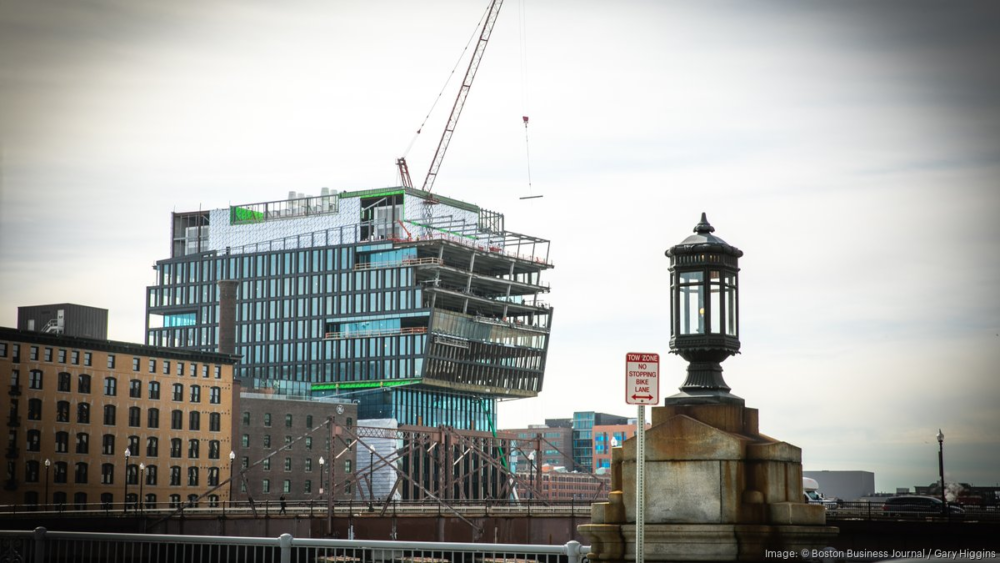The Wu administration is budgeting for a marked slowdown in the growth of property tax collections in the upcoming fiscal year because of a drop-off in new real estate development in Boston.
The revenue estimate will likely play a role in the ongoing debate about Mayor Michelle Wu’s plans to increase “linkage” fees on new development and to require more income-restricted housing in market-rate apartment and condo buildings. Many developers argue the added expense will choke off new development, while Wu and allies contend the measures are a reasonable way to drive production of much-needed affordable housing in the city.
Wu revealed the projection on Wednesday in her proposed $4.28 billion operating budget for fiscal 2024. The city relies heavily on property taxes to fund its operations, as 72% of its total expected revenue comes from those taxes.
For that reason, year-over-year growth in property tax collections is key to the city’s fiscal health. A state law known as Proposition 2½ limits how much cities and towns increase taxes on property owners each year, but new development falls outside that cap, making a robust real estate project pipeline especially important for boosting city coffers.
Ricardo Patrón, a spokesperson for the administration, said that the city’s revenue forecasting is conservative by design because of the requirement that the city have a balanced budget. It forecast the same revenue increase from new development, $60 million, last year, he said. That figure is now projected to be close to $100 million.
Based on Wu’s budget, the city’s property tax haul is still expected to increase year-over-year. It’s just that the increase is budgeted to be smaller than it’s been in five years.
The budget estimates that the annual increase in overall property-tax collections will fall by 20% year-over-year, to $135 million. The increase did slow by 10% year-over-year in fiscal 2022, but otherwise has continually risen since fiscal 2015, a period of economic growth that powered Boston’s building boom.
In the budget document, city officials said they budgeted for new growth “conservatively… due to economic uncertainty related to price inflation and high interest rates.”
Those factors have contributed to a downturn in real estate development in the region. New construction has fallen off as banks tighten lending and demand from commercial tenants has dropped, even among life sciences companies in that once red-hot sector.
Real estate industry groups have warned that Wu’s proposal to hike linkage fees and toughen requirements under the city’s inclusionary development policy, or IDP, will lead to a further slowdown in development. The linkage hike was approved by the Boston Planning and Development Agency in February but has not yet taken effect. The IDP changes have yet to be approved. Rent control, should it win passage in the state Legislature, would have a similar effect, they contend.
Even though growth in property tax collections is budgeted to slow, the mayor’s overall budget for fiscal 2024 is proposed to jump 6.8% from the current fiscal year. That increase comes despite a lack of American Rescue Plan Act local aid for revenue replacement in the new budget.
Much of the proposed overall increase is paid for by a projected jump in excise taxes from what city officials envision as a continued economic recovery from Covid-19. Room occupancy taxes from hotels and other lodging, for instance, are budgeted to come in at $124.5 million, up from $75.5 million in fiscal 2022 and ahead of where they were just prior to the pandemic. The collection of aircraft fuel excise taxes are projected to make a similar jump.
Subscribe to the Morning Edition or Afternoon Edition for the business news you need to know, all free.
Correction/Clarification
The story has been updated with comments from a city spokesperson.



